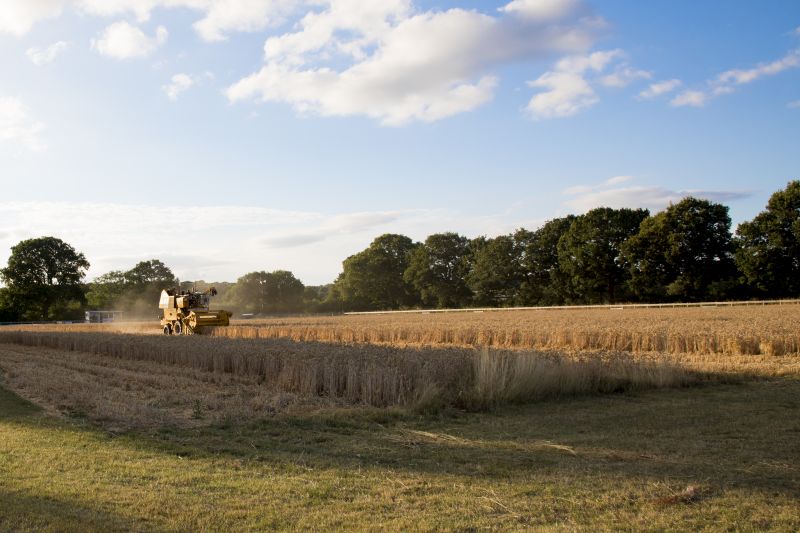
The UK's first autonomous farm will begin development after the Hands Free Hectare project received substantial funding to expand its operations.
The funding boost means the UK will get its first 'Hands Free Farm', which will see crops grown and harvested without operators in the driving seats or agronomists on the ground.
It will grow three different combinable crops across 35 hectares on land in Shropshire.
The team behind the project are looking to solve problems like fleet management and swarm vehicle logistics and navigation.
Once the farm is completely established, it will become a testbed for agricultural innovation. Companies will be encouraged to test and evaluate their technologies.
The Hands Free Hectare (HFHa), a project run by Harper Adams University and Precision Decisions, received funding from Innovate UK to expand operations.
HFHa started in 2016 with the aim to be the first in the world to grow, tend and harvest a crop using only autonomous means.
The project has been taken through two successful cropping cycles, and won a number of awards, including the BBC Food and Farming Future Food Award.
The new farm will be a three-year-long project, run in partnership between Harper Adams and Precision Decisions, along with a new partner; the UK division of Australian precision agriculture specialist Farmscan AG.
The project has already got underway and is based at the Harper Adams University's campus in Shropshire.
Jonathan Gill, Mechatronics Researcher at the university said: “We’re moving past the feasibility study which the hectare provided us with, to now a vision of the future of farming.
“We want to prove the capability and ability of these systems in reducing the levels of soil compaction and precision application.”
Martin Abell, Mechatronics Engineer for Precision Decisions added: “We still believe that smaller vehicles are best, so we’ll be using up to three small tractors for the project, including our original ISEKI tractor, and a CLAAS combine will be joining our old Sampo.
“This time, we’re moving away from the perfect hectare and to real world situations. The fields will be irregular, there’ll be obstacles, undulating land and pathways.”
Callum Chalmers, Business Development Manager for Farmscan AG, said their goal is to have multiple small unmanned vehicles working together seamlessly in the same field.
He said the robots will be remotely monitored and will complete all the tasks expected on a commercial farm.
“Navigating roads and pathways between fields is an exciting new challenge; we want to face real world conditions, where fields aren’t often in one place and it’s a necessity to travel between them,” Mr Chalmers said.
Meanwhile, an autonomous robot called 'Mamut' has recently been unveiled, which captures data on crop health and yield at the level of individual plants.
In the US, the world's first autonomous orchard sprayer, 'GUSS', has also been announced earlier this year. It uses GPS, vehicle sensors and software to remotely monitor crops.
